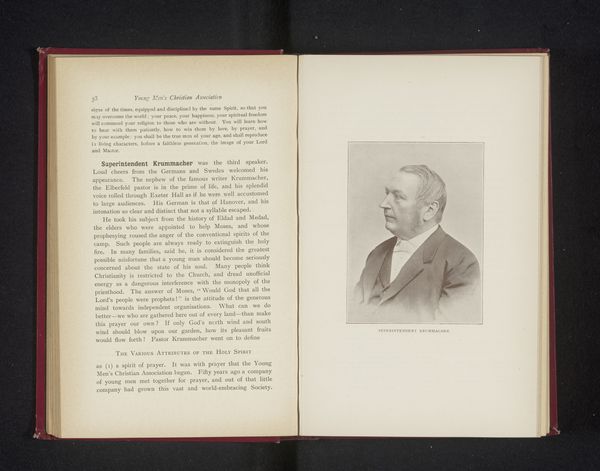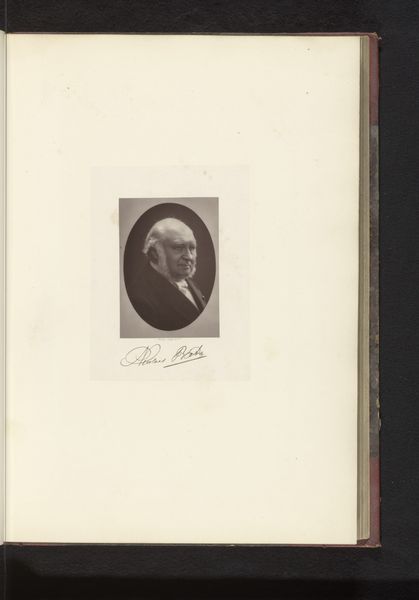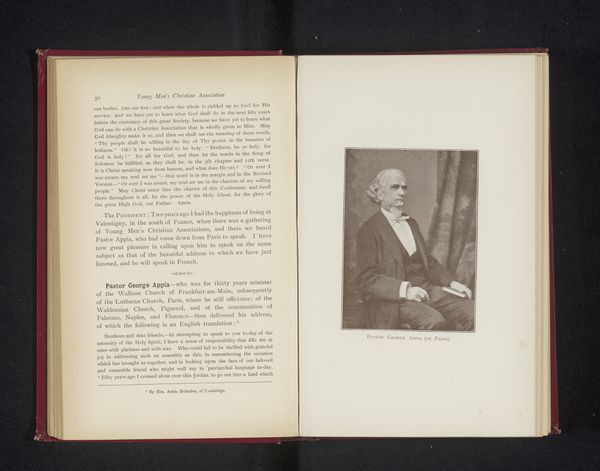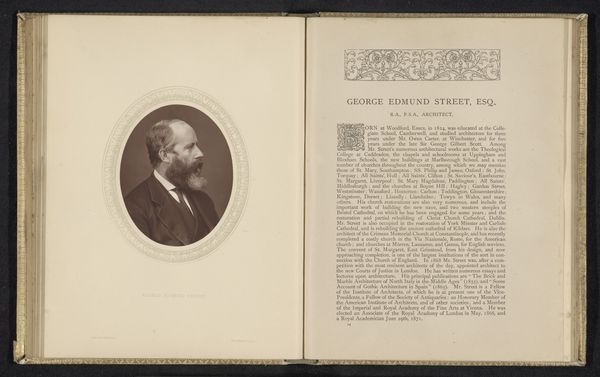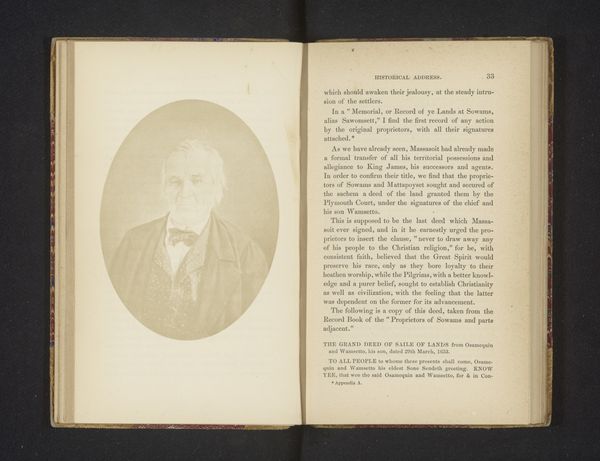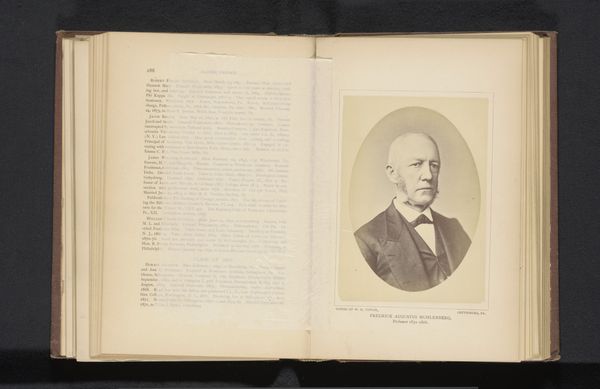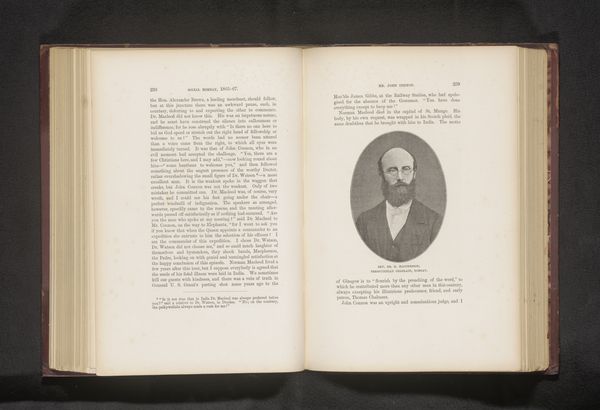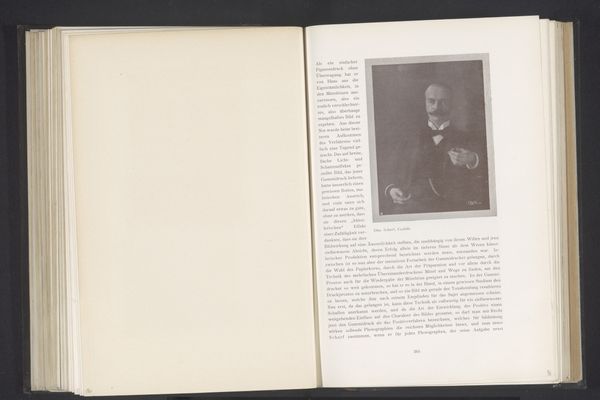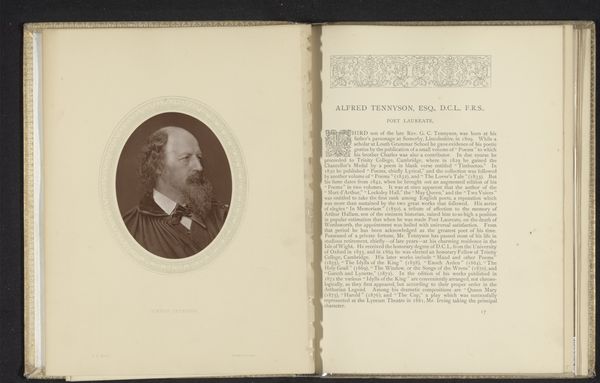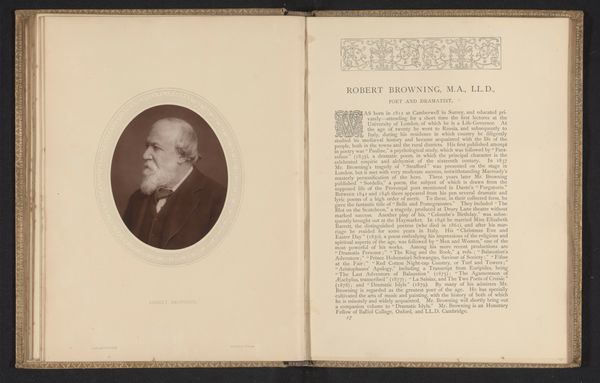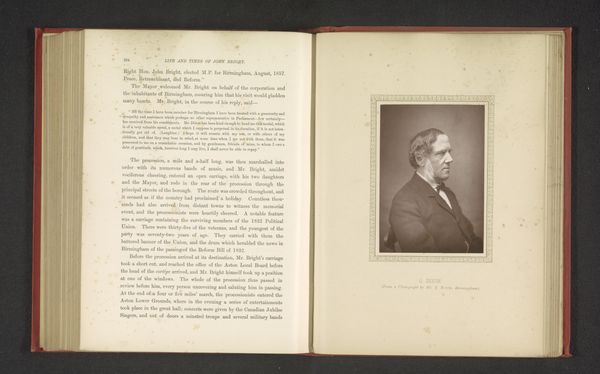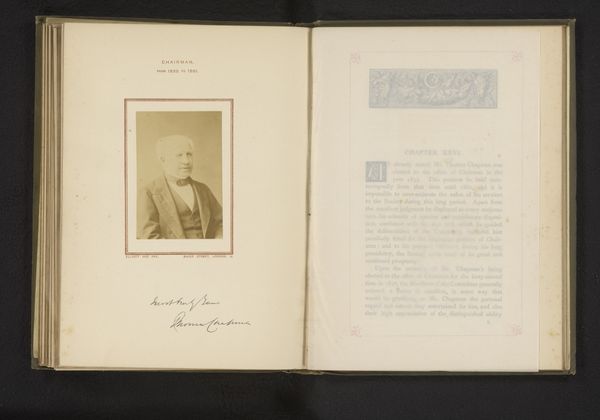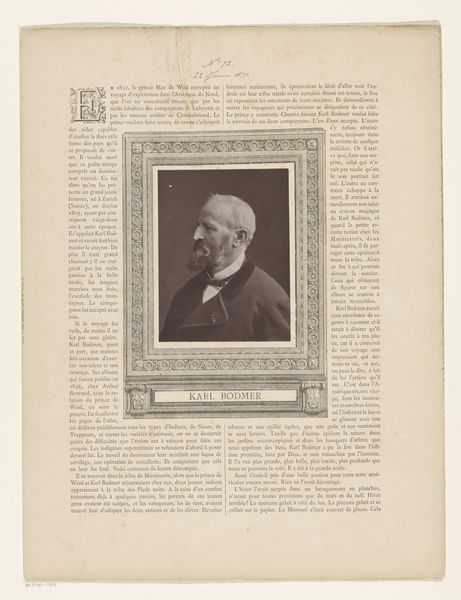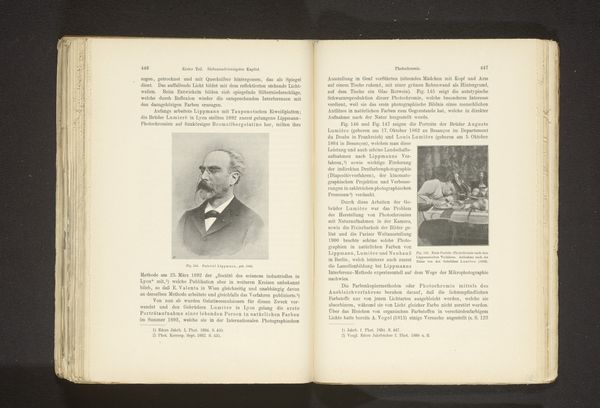
photography, gelatin-silver-print
#
portrait
#
photography
#
gelatin-silver-print
#
history-painting
#
academic-art
Dimensions: height 111 mm, width 84 mm
Copyright: Rijks Museum: Open Domain
Editor: So, this gelatin silver print is titled *Portret van Gustave Boulanger*. It’s by Ferdinand Mulnier, made before 1881 and housed at the Rijksmuseum. There's something dignified, almost imposing, about the man's gaze. What symbols do you see operating in this portrait? Curator: Immediately, the profile pose strikes me as deliberate, harking back to classical portraiture – think Roman emperors on coins, emphasizing Boulanger’s status. The surrounding ornamentation, like laurels, elevates him further, suggesting accomplishment, even immortality within his field. Look at the crispness of the photograph – it announces modernity while referencing a rich artistic lineage. Do you pick up any visual cues that speak to his profession? Editor: The sharp suit and tie perhaps suggest someone established, professional. Are we to understand "professional" as standing in contrast to other kinds of artistry? Curator: Not contrast, but integration. Notice how photography itself was gaining acceptance as a "high art" at the time. His refined attire coupled with his strong features and composed stance serve as a carefully crafted declaration of the artistry now possible through photography, yet mindful of more well established Academic traditions. Consider what it meant to visually align oneself with both tradition *and* modernity at that moment in history. Editor: I hadn’t considered that interplay so directly. Seeing the photograph as its own statement is interesting. Curator: Indeed! Portraits are not merely recordings of likeness; they actively construct identity through visual language. Editor: I can appreciate that. Thank you.
Comments
No comments
Be the first to comment and join the conversation on the ultimate creative platform.
